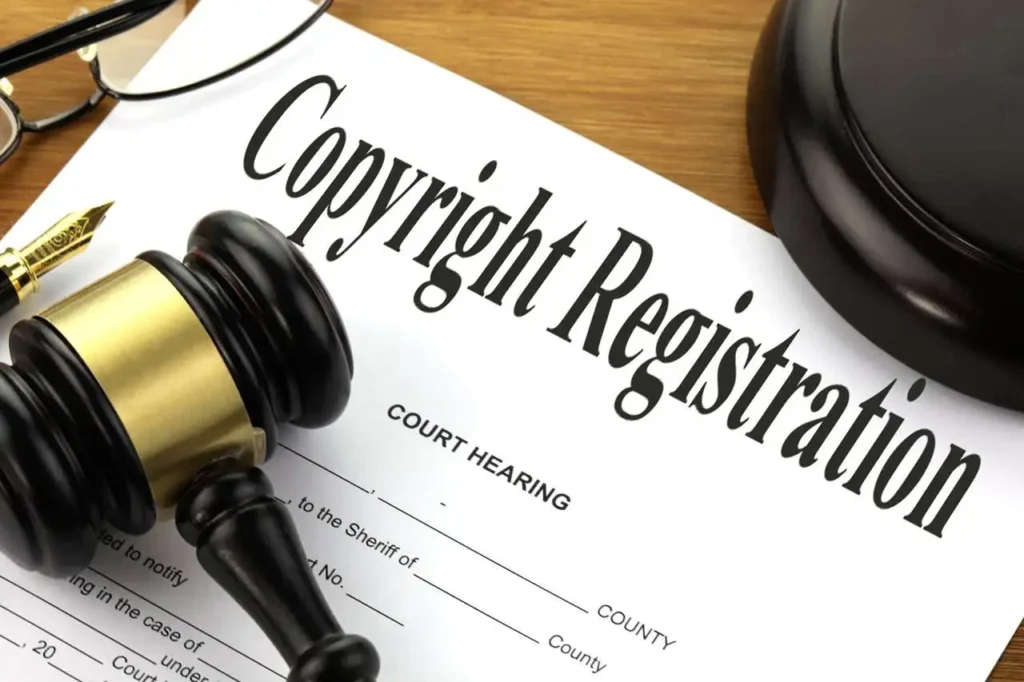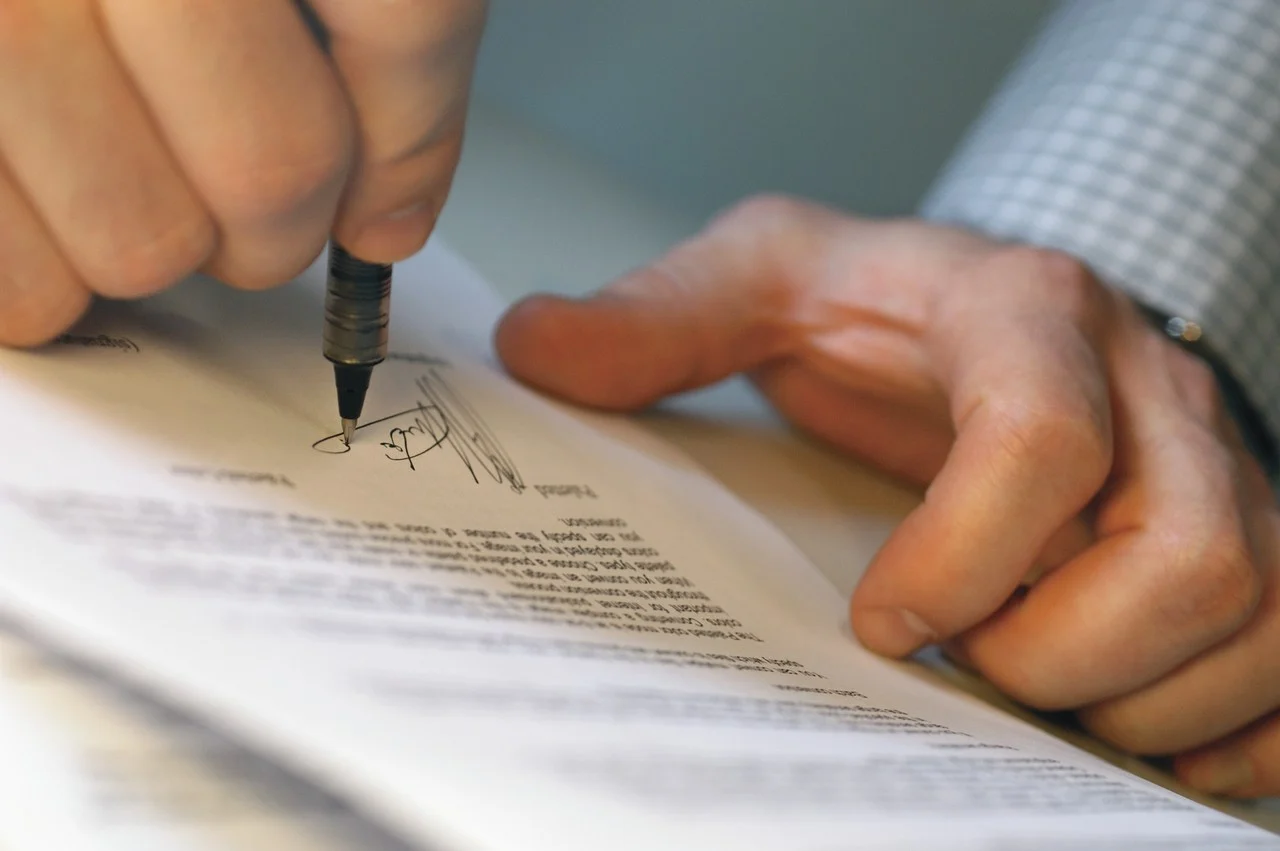Copyright Registration
Service
Copyright Registration

Online Procedure for e-filing of copyright applications in India | Legal Vedas
Copyright, as the name implies, grants legal rights to the creators of literary, theatrical, musical, and creative works, as well as producers of cinematograph films and sound recordings. The concept of copyright was launched to assure the protection of a creative person's intellectual works and to foster innovativeness by boosting its uniqueness and protecting the work from being replicated by unauthorized persons.
Copyright is legally recognized under the Copyrights Act of 1957. The right allows a person to duplicate, translate, bequeath, or sell the work for consideration. However, concepts, methods, and procedures cannot be copyrighted. Copyright registration takes place at the Copyright Office, which is overseen by the Registrar of Copyrights, who acts on behalf of the Central Government. The term "copyright" varies depending on the type of work protected, as outlined in Chapter V of the Copyrights Act of 1957.
What is Copyrightable?
The rights granted to a copyright holder vary depending on the type of original work that is recorded:
- In the case of artistic, literary, dramatic, and musical works that are not computer programs, the owner of the copyright has the right to reproduce, translate, issue copies, perform/communicate to the public, and make cinematographic films based on the copyrighted work.
- In addition to the rights indicated above, computer program creators will be able to sell or rent out their programs for a fee.
- When a sound recording or cinematographic film, including images, is copyrighted, the creator retains the right to reproduce, disseminate to the public, store in electronic form, sell, or rent the work.
Book A Consultation
How can we help you?
Need Help with Legal Drafting or Registration? Talk to Our Experts Now!
WHY IS REGISTRATION OF COPYRIGHT NECESSARY
- The copyright registration certificate serves as evidence of your ownership in any court of law.
- It safeguards the original work and prevents it from being replicated.
- The registration provides the work's creator with legal protection against infringement of his rights. The registration provides the work's originator with legal protection against infringement of his or her rights.
- The creator acquires exclusive rights to reproduce, translate, disseminate, and adapt the copyrighted work.
- Copyright makes your work more unique and allows you the right to market it to your specific audience.
- The Indian legal system provides copyright protection that is generally accepted by many international countries, allowing the work to seek privilege in such countries.
- Registration makes the work more publicly acceptable and allows it to be easily identified and searched through the registered database.
Documents Required
Our Assurance
Transparent & Timely Service
There are no hidden fees or delays—only straightforward communication, quick turnaround, and dependable legal support from start to finish.
Accuracy & Compliance
We ensure that every legal document and process is drafted precisely and in complete compliance with current laws and government regulations.
Confidentiality Guaranteed
Your personal information and legal documents will be treated with strict secrecy and data security. We maintain confidentiality with care
Meaning
For the author or producer of original works of art, including books, music compositions, sound recordings, films, or computer programs, copyright is a useful legal security tool. It guarantees the full economic and moral rights of the creator over their works of art.
Original artistic creations such as written texts, music compositions, recorded sounds, paintings, dances, movies, cinematography, computer programs, and databases are protected.
Significance: It shields thoughts from abuse and symbolizes their expression.
Governed by: Indian Copyright Act, 1957.
The work must be unique, imaginative, and fixed in a concrete form in order to meet registration requirements.
Exclusions: Without the author’s consent, no one is allowed to duplicate or reproduce the work.
Validity Term: Copyright is valid for 60 years.
The owner is granted the only authority to stop unauthorized duplication, distribution, and reproduction of their copyrighted work.
Meaning: Any word, symbol, or design that sets a company apart from competitors in the market is protected by law as a trademark, which aids in creating a distinctive brand identity.
Any word, logo, color, font, or design that sets a product or brand apart from others is protected.
Significance: It is essential for determining the identity of a brand.
The Trade Marks Act of 1999 governs it.
Registration requirements: The mark needs to be distinct.
Exclusions: Prohibits the use of the same or a comparable mark or symbol by others.
Validity Term: A registered trademark is valid for ten years, after which it may be renewed.
Rights Granted: Permits the owner to use the mark and prevent third parties from using the font, color, or design without permission.
Meaning: An invention is protected by a patent, a type of intellectual property. For a restricted period, it grants inventors the legal right to prevent others from producing, utilizing, or commercializing their innovation.
Features such as an article’s shape, arrangement, pattern, decoration, or color combination are all protected.
Significance: It safeguards innovative and practically useful inventions.
The Indian Patent Act of 1970 governs it.
Registration requirements include that the innovation be unique and useful in an industrial process.
Exclusions: The invention may not be duplicated or used by others without authorization.
A patent has a 20-year validity period.
Rights Granted: Gives the inventor the sole authority to manufacture, market, utilize, or import the patented good or method.
Frequently Asked Questions (FAQs)
No, it is not required, although it is strongly advised for court protection and legal enforcement.
The owner has the same complete ownership rights over the work as he does over any of his other properties thanks to the copyrights. Thus, the copyrighted work can be sold and transferred just like any other property.
Register your copyright to protect your original work from infringement or unfair use. Having your original work protected by copyright proves that it is solely yours.
- The copyright logo is usable.
- Makes it simpler to demonstrate who owns your work in the case of plagiarism and infringement.
- Has the ability to bring a copyright infringement lawsuit in court.
- It enables you to get more money back from the thief or infringer.
- Lifetime protection at a one-time cost.
How long is the validity of a copyright?
A copyright is valid for 60 years. For literary, artistic, theatrical, and musical works, the number of years begins to count from the author's death date. In contrast, the calculation for cinematographic films, sound recordings, pictures, etc., starts on the day the work is published.
Books, sound recordings, music, artwork, dramatics, computer programs, databases, ads, paintings, and other artistic creations are all considered copyrighted works.
Applications for copyright registration are open to any individual or corporate body. Authors, artists, musicians, photographers, producers, painters, composers, or businesses can use this legal ability to protect their creative works.
Our Simple 3-Step Journey
Your Legal Path with Legal Vedas
Reach Out to Us
"Fill out the contact form, call us directly, or connect with our team on WhatsApp to share your legal service requirement.

Get Personalised Guidance
Our legal specialist will communicate with you, understand your requirements, and walk you through the paperwork or writing process.

Our Latest Blogs
Latest legal Information
Behind the word mountains, far from the countries Vokalia and Consonantia, there live the blind texts they live
Registeration
Subscribe Now
Don’t miss our future updates! Get Subscribed Today!
©2025. Legal Vedas. All Rights Reserved.


